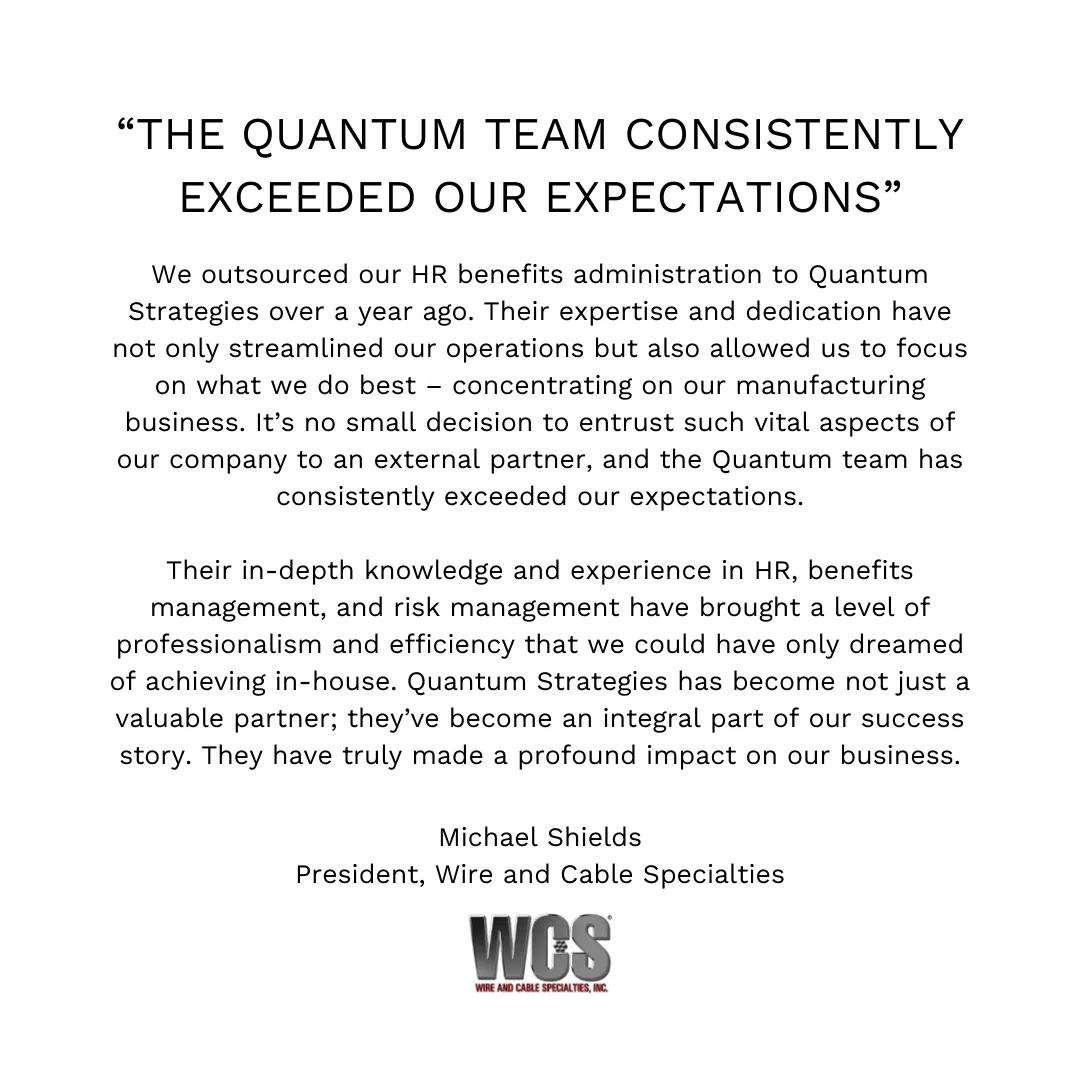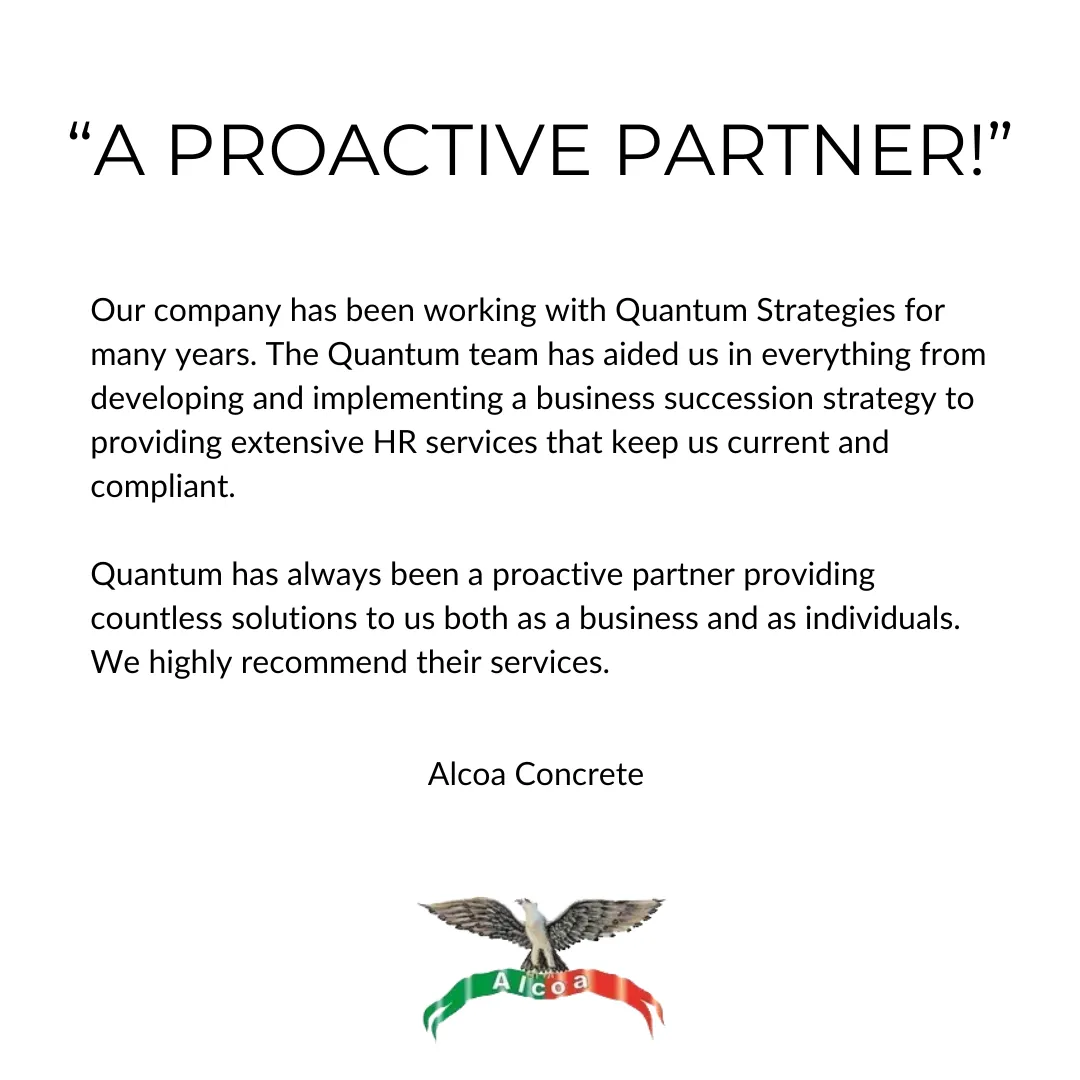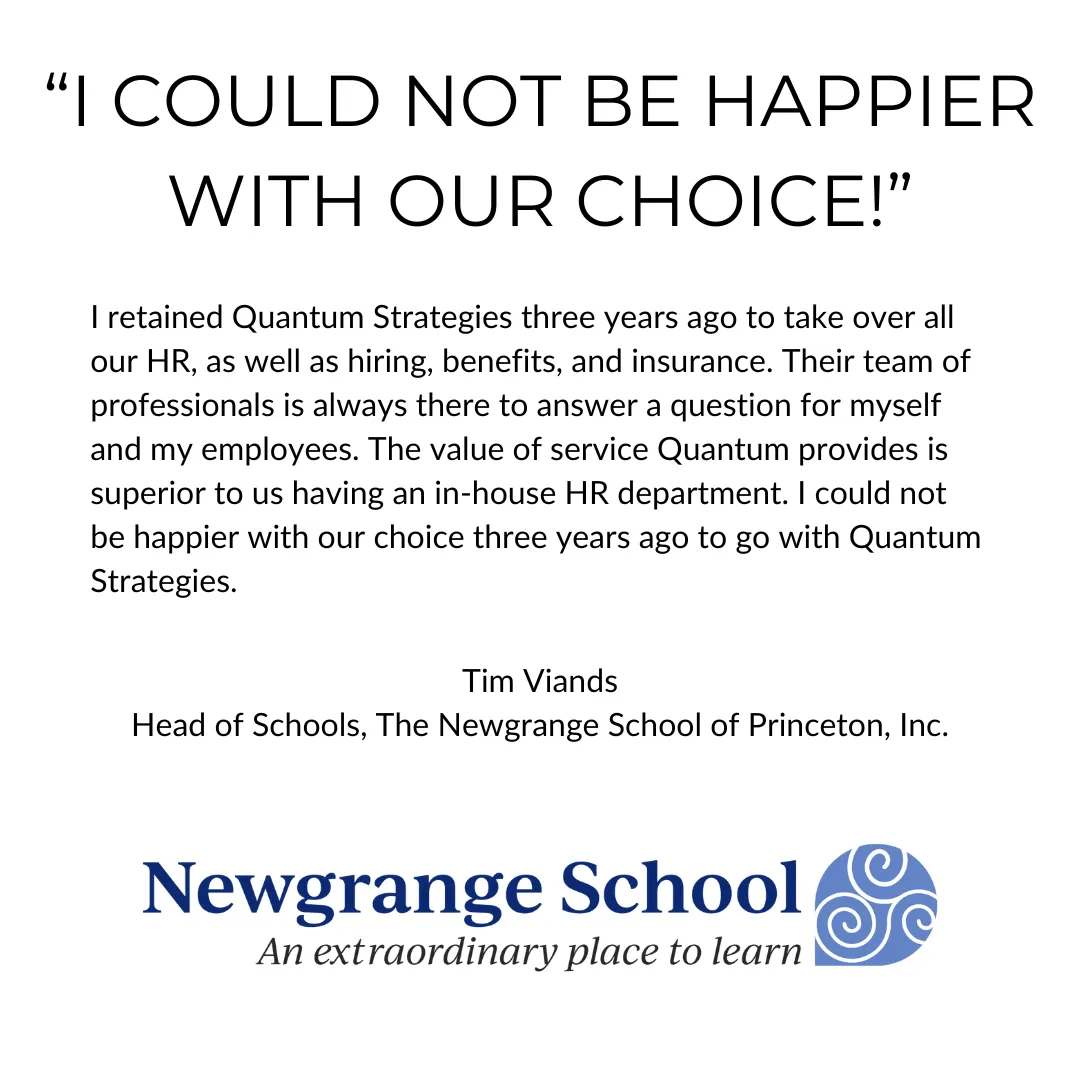Tailored HR Solutions as Unique as Your Business
Expert consulting and service to elevate your HR from a headache to a value driver.
Does Your HR Function Make the Grade?
Take our 5-minute quiz and evaluate the effectiveness of your HR function.

How We Help
We Focus on Your HR Needs,
So You Can Focus on Your Mission.
At Quantum Strategies, we understand that effective human resource management is the cornerstone of every successful business, regardless of size. Our mission is to provide tailored HR solutions that align perfectly with your unique business needs and growth stage.
Our Services
Navigating Change with Confidence: Quantum Expert HR Solutions
From Policy Assistance to Leadership Succession Planning, Quantum Strategies is Your Ultimate HR Resource to Solve Your Business Challenges.
HR Operational
Assessments
Unlock the full potential of your HR department. Our collaborative approach brings clarity and efficiency to your HR operations, providing a thorough analysis of your department's structure, costs, effectiveness, and needs.
Comprehensive Analysis: Detailed evaluation of your organization, workgroups, and individual roles for optimized efficiency.
Objective Insights: Receive a clear blueprint highlighting your HR department's strengths, weaknesses, and gaps.
Strategic Recommendations: Actionable plans focusing on technology utilization, communication enhancement, and leveraging department strengths.
HR Consulting and Managed Services
Tailored to align with your unique needs, our HR consulting and managed services enhance operational efficiency and effectiveness, allowing you to focus on your core mission while we optimize your HR investment.
Expert Supplemental Support: Strengthen your existing HR team with specialized expertise to navigate complex HR landscapes.
Personalized, Agile Solutions: Customized services for organizations with or without HR teams, adaptable to your specific requirements.
Goal-Oriented, Clear Communication: Delivering precise, actionable strategies that align with your organization’s goals and ensure successful execution.
Custom HRIS Design and Integration
Revolutionize your HR data management. Our team will evaluate your current human resources technology stack, offer recommendations, and then integrate your new and existing systems with our cutting-edge technology, ensuring seamless data flow and optimized operational efficiency.
Seamless Integration: Connect legacy systems with modern platforms for streamlined data management.
Tailored Design: Custom HRIS solutions uniquely crafted to meet your specific business needs.
Advanced Analytics: Leverage data-driven insights for strategic decision-making and operational excellence.
“Successfully steering through the specialized HR challenges within organizations of all kinds demands expert understanding, strategic planning, and precise implementation. With comprehensive knowledge of these challenges and the right solutions, your business can stay focused and successful in their vital missions.”
William J. Rizzo

Who we Are.
We Focus on Your HR Needs,
So You Can Focus on Your Mission.
At Quantum Strategies, we recognize that proficient management of human resources is fundamental to the success of any enterprise, irrespective of its scale. Our objective is to deliver customized human resource solutions that are in perfect harmony with your distinct business requirements and developmental phase.
Constant Improvement
Commitment to Customers
High Level Of Knowledge
Best Service You Can Get

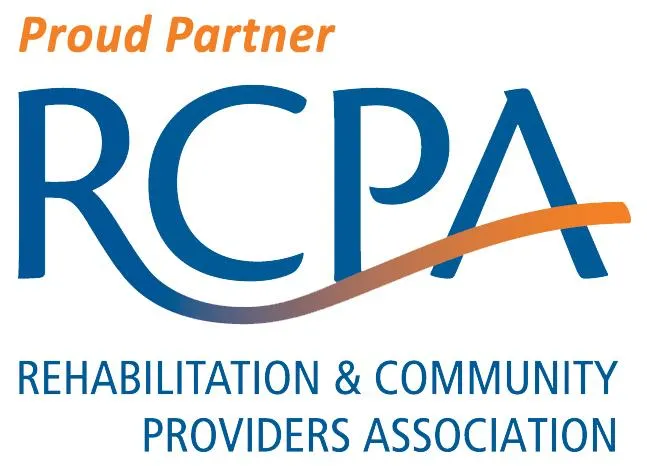
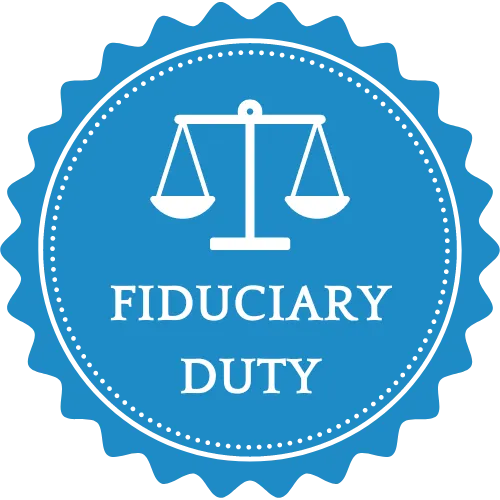
Why Choose Us
A True Partner to Solve Your Most Complex HR Challenges.
Empowering HR Innovation and Compliance
Commitment to 100% Client Satisfaction
People-First Approach

Peace of Mind:
Handle ongoing compliance with ease

Employee Satisfaction:
Build a positive workplace with engaged employees

Strategic Confidence:
Drive strategy with advanced analytics

Leadership Development:
Equip your team with the tools to lead

2,245 +
Happy Clients

25 +
Years Of Experience

120 +
Professional Team
Testimonials
The Quantum Commitment - 100% CLIENT SATISFACTION!
At Quantum, we understand that your satisfaction matters most, and The Quantum Commitment is our way of putting that understanding into action. Experience the difference with a team that is dedicated to making your satisfaction the cornerstone of our service. Because when you choose Quantum, you choose excellence, reliability, and a commitment to exceeding your expectations every time.
Our Resources
Unveiling Proven Strategies and Insights.
Discover actionable tips, expert advice, and industry insights to fuel your journey towards success.

Fostering a Psychologically Safe Workspace
As we navigate the complexities of the post-pandemic world, the importance of mental health in the workplace has surged to unprecedented levels. According to research from the
American Psychological Association, 81% of employees are now actively seeking workplaces prioritizing mental well-being.
Key Challenges Faced by Human Resources in Nonprofit Organizations
The nonprofit sector brings its own set of specialized difficulties, especially in the area of human resources (HR). Although these difficulties may share some common ground with those in the for-profit industry, they possess unique characteristics that require special attention from nonprofit leaders.
FOUND THESE HELPFUL?
Explore Additional Articles and Resources In Our Blog

How Great Company Culture Fuels Employee Engagement, Retention, and Growth
Introduction
The Benefits of a Strong, Positive Culture
Employer Responsibility: Leadership’s Role in Culture
How to Create a Culture That Employees Love
Key Takeaways

Introduction
Organizational culture is a puzzle many businesses struggle to solve. It reflects what employees do when no one is looking and is shaped by leadership but owned by everyone. Culture defines attitudes and behaviors, creating informal norms that can differ from a company’s stated values. When managed well, a positive culture can boost productivity by 12% and increase revenue by 33%.
Company culture is essential for business success, influencing how employees view their roles, treat each other, and interact with customers. This blog explores the benefits of strong culture, the role of leadership, the risks of toxic environments, and the crucial role of recruitment in fostering a positive work atmosphere.
The Benefits of a Strong, Positive Culture
Company culture affects external perception in many ways. It can make or break your recruiting efforts, as most job seekers want to work for companies where employees are happy and engaged. If you can retain happy employees, they are more likely to work harder and provide better experience for customers. This, in turn, leads to increased customer satisfaction, higher revenue, and more resources to reinvest in employees, creating a cycle of success.
A positive culture fosters:
Higher Employee Retention: People are more likely to stay in an environment where they feel valued and connected.
Improved Productivity: Employees are more engaged and motivated when they believe in the company’s mission and values.
Stronger Brand Reputation: A great company culture translates into happier employees who become brand ambassadors.
Better Customer Experiences: Satisfied employees provide better service, leading to more loyal customers.
If the people interacting with your business and customers are unhappy, how can you expect your business to thrive? Culture is a major factor in employee well-being and engagement, and a company that neglects it risks losing both talent and profitability.
Employer Responsibility: Leadership’s Role in Culture
How important is leadership to company culture? The answer: extremely important. Leadership sets the tone for culture by defining the mission, vision, and values of a company. Even if leaders are not interacting with employees daily, their actions influence workplace dynamics.
Leadership must:
Lead by Example: Employees take cues from management’s behavior. If leaders fail to uphold company values, employees will follow suit.
Monitor and Engage with Culture: A strong leader actively observes workplace culture and addresses issues before they escalate.
Set Clear Expectations: Employees should understand the cultural standards expected of them and the consequences of failing to uphold them.
Leverage Social Networks: Culture is driven by informal networks. Leaders must identify key social influences within the organization to help shape and spread the desired culture.
Encourage Psychological Safety: Employees should feel safe expressing opinions, admitting mistakes, and taking risks without fear of ridicule or retaliation. A culture of trust fosters innovation and collaboration.
How to Create a Culture That Employees Love
Building a workplace culture that employees love requires intention, effort, and continuous improvement. Here are key strategies to make your culture one that employees genuinely enjoy being a part of:
Foster Open Communication
Encourage transparency from leadership.
Provide regular feedback and listen to employees' concerns.
Use surveys and town hall meetings to gather input.
Recognize and Reward Employees
Show appreciation through employee recognition programs.
Celebrate achievements with bonuses, awards, or simple acknowledgments.
Ensure that hard work and contributions don’t go unnoticed.
Promote Work-Life Balance
Offer flexible working hours or remote work options.
Encourage taking breaks and vacations to prevent burnout.
Respect boundaries between work and personal life.
Invest in Employee Growth and Development
Provide learning opportunities through training and mentorship programs.
Support career progression with clear growth paths.
Encourage employees to pursue professional development.
Create a Sense of Belonging
Foster an inclusive environment where diversity is celebrated.
Encourage team-building activities and social engagement.
Promote a culture of support, collaboration, and mutual respect.
Align Actions with Company Values
Ensure leadership and employees practice what the company preaches.
Reassess and refine company values to keep them relevant and actionable.
Reinforce values through everyday decisions and workplace policies.
Encourage Innovation and Creativity
Give employees a platform to share ideas and contribute to company growth.
Support experimentation and calculated risk-taking.
Cultivate a positive culture where employees feel empowered to voice their insights.
Prioritize Diversity, Equity, and Inclusion (DEI)
Ensure diverse voices are represented in leadership and decision-making.
Provide training on bias awareness and inclusive leadership.
Foster an equitable workplace where all employees feel valued and heard.
Encourage Employee Autonomy and Trust
Give employees ownership over their work and decision-making.
Avoid micromanagement and instead empower teams to take the initiative.
Build trust through accountability and open collaboration.
A culture that employees love is one where they feel valued, heard, and empowered. When employees are engaged and happy, they contribute more positively to the company's success.
The Employee’s Role in Culture
While leadership plays a significant role, culture is not 100% in the hands of employers. Employees shape and mold culture through their daily actions and interactions. Over time, employees learn behaviors based on the actions of their peers. If these behaviors are left unchecked, they can contribute to either a positive or negative work environment.
Employees influence culture by:
Reinforcing social norms through daily interactions
Modeling behaviors they see in leadership
Contributing to team dynamics and collaboration
Without intentional culture management, poor workplace behaviors can snowball into major cultural problems, affecting morale and productivity.
The Risks of a Toxic Culture
No company sets out to have a toxic work culture, yet many struggle with negativity in the workplace. Why? Because they are not intentional about their culture.
A company may claim to have a “family-like” work environment, but if employees experience micromanagement, favoritism, or burnout, these cultural statements become meaningless. Toxic cultures thrive when leadership fails to act on negative behaviors, allowing issues such as workplace gossip, poor management, and lack of employee support to persist.
To prevent a toxic culture, companies must be proactive in their approach.
Technology and Culture
Technology can enhance your culture strategy by supporting initiatives that foster employee engagement. While it can’t replace face-to-face interactions, tools like Employee Engagement software help monitor and implement initiatives, such as celebrating successes, recognizing achievements, and setting team challenges like "who can walk the most steps this month." Without technology, many of these practices might not happen or could exclude remote employees. Quantum Strategies' Maximum Accountability suite, featuring an Employee Engagement Centre, can be a valuable addition to your culture-building strategy.
Conclusion
Culture is Your Competitive Advantage. A strong company culture is not just nice-to-have; it is a business necessity. Companies that prioritize culture see higher productivity, better retention rates, and stronger customer satisfaction. However, culture does not build itself. It requires active leadership, engaged employees, and intentional hiring.
Companies that take culture seriously see stronger teams, happier employees, and long-term success. What kind of culture do you want for your company? Contact Us to start taking intentional steps toward creating a workplace where employees thrive, contribute, and succeed.
Connect
Keep Up with Our Latest News and Insights
Subscribe to Quantum Strategies' latest updates and insights.
Office: Philadelphia, PA | Glen Mills, PA | Washington, DC
Call 610.624.1770
Email: info@QS2500.com
Site: www.QS2500.com

